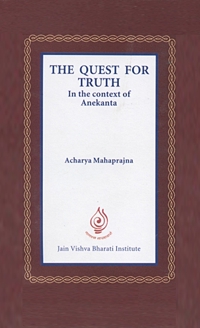
To be free from attachment and aversion is ahimsa. To behave in a restrained manner towards all beings and to maintain equality is non-violence. When the idea of equality grows in social life then a non-violent revolution takes place. For a non-violent revolution Mahavira gave the following steps (sutras):
- Do not harm anybody.
- Do not be inimical to anybody.
The one who is inimical fosters his capacity for hatred.
- Practise amity towards all.
These sutras are related to the personal life of an individual.
Mahavira presented the above sutras in the social context also.
- Mahavira directed people's attention towards this and said that to enslave is violence and so do not enslave.
- In those days men would keep their women and servants dependent on them. They would think it was their right. Mahavira drew the attention of the people towards this violence of subjugating people. He gave another sutra:do not violate the independence of others.
- In those days society accepted the existence of a high and a low class. The high class abhorred the lower class. They even thought of them as untouchables. Mahavir stated that this situation was inhuman. He said caste is not real. Caste status is changeable and imaginary. Do not promote violence by making this an unchanging eternal rule. Do not abhor any man. By bringing people of all castes together into his sangha he gave expression to the aphorism, "All men are one".
- In those days animals were sacrificed as part of sacred rituals to access heaven. Mahavir said that to access heaven was not man's goal. His goal was Nirvana or complete and ultimate peace. Heaven does not become accessible through animal sacrifice. The one who kills animals and sacrifices them paves his way to hell not heaven.
- In those times it was believed that those who died in war went to heaven. Highlighting the improbability of such a belief Mahavira said:
"War is violence. Hatred fosters hatred. It does not solve problems".
- Do not wage wars. Give up hunting and eating flesh.
 Acharya Mahaprajna
Acharya Mahaprajna


